Peace Studies Days
Young people played an important part in the civil rights movement, but their agency as peacemakers is often downplayed in history.
The Peace Committee is committed to helping young people think critically about issues of peace and war in our age, and challenging them to think through why life is so often violent and what they can do to change it.
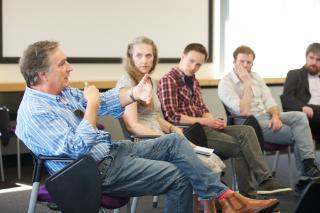
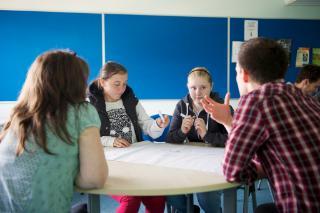
To this end we have worked with the staff of Benfield School, Newcastle, to run ‘peace days,’ under title ‘making a difference in a violent world.’ These begin with a short plenary using video footage of young people’s involvement in the struggle for racial justice in Birmingham, Alabama, and Martin Luther King’s challenge to the young to make a difference through nonviolent political activism.
This is followed by a series of small group workshops. These variously cover topics as diverse as dealing with bullying and other violent behaviour, challenging stereotypes of young people, and the experience of asylum seekers in the UK, to art and war, the British involvement in the Iraq and Afghanistan wars, and the question of whether the UK needs nuclear weapons.
The day finishes with a plenary question-and-answer session.
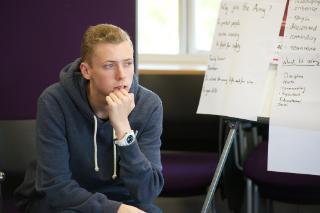
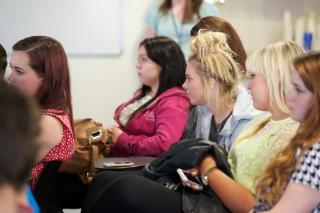
The programme involves national peace education organisations, and a core of geography lecturers from around the country. A geographical imagination of an interconnected world was key to King’s vision: "We are caught in an inescapable network of mutuality, tied in a single garment of destiny. Whatever affects one directly, affects all indirectly," he said. In a globalised world our destinies are increasingly interlinked. The peace day explores these moral geographies of responsibility to each other.
This core of geographers committed to peace education are inspired by the life and work of geographer Peter Kropotkin, who in a famous 1885 article entitled ‘What geography ought to be’, wrote:
"In our time of wars, of national self-conceit, of national jealousies and hatreds ably nourished by people who pursue their own egotistic, personal or class interests, geography must be - in so far as the school may do anything to counterbalance hostile influences - a means of dissipating these prejudices and of creating other feelings more worthy of humanity.”
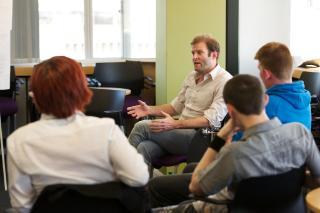
Although we regrettably lack the capacity to run peace days in other schools at the moment, we want to help teachers, parents, peace groups and academics work together to establish similar events. Therefore we have worked with teachers at Benfield School and Comberton Village College, Cambridgeshire, to produce a free resource pack for schools and peace groups, entitled ‘How to Run a Peace studies Day’.
Download the pack for free here: How to Run a Peace Studies Day
To help us understand what works and what doesn’t, we undertook an academic study of the Benfield and Comberton Peace Days. It can be read here:
(Nick Megoran, Hartmut Behr and Jane Carnaffan), 2017, "Peace education, militarism and neo-liberalism: conceptual reflections with empirical findings from the UK." Journal of Peace Education.